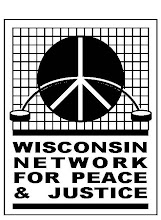The New York Times recently ran an op-ed saying that Obama is right in calling for torture photos to not be released. The author, Philip Gourevitch, is also the co- author with Errol Morris of a book titiled: The Ballad of Abu Ghraib in which he interviews the military members who served at Abu Grhraib but says at the end that no photos are in the book because they can be found elsewhere. To support his op-ed he says, "They are mistaken. Just as it was a public service to release the Abu Ghraib photographs five years ago, Mr. Obama is right today to say we don't need more of them.
What Gourevitch, Morris, and Obama fail to comprehend is that we must show our military members and society at large what is unacceptable not by separating out a few bad apples as Bush called them. Obama has committed similar mistakes in saying that "what was carried out in the past by a small number of individuals" when describing the torture. According to Edward Tick, the author of War and the Soul, we "must expose atrocities as soon as possible to curb troops from giving free rein to their primal impulses."… "Most offenders in these modern massacres (My Lai, No Gun Ri, Abu Ghraib) have been ordinary people, not sadists or psychopaths." They are simply a product of their situation, what Rober Jay Lifton calls an "atrocity-producing situation." "When fear, threat, violence, loss, proximity to death, moral confusion, alienation, disbelief, immersion in horror, power, and control over others, and sheer exhaustion coincide long enough - and when the enemy has been sufficiently dehumanized – we are in an atrocity-producing situation." This situation allows normal people, not bad apples, not a small number of individuals, our brothers and sisters in the military to descend into horrific action sometimes condoned by their superiors. By singling out supposed bad apples, the behavior is not properly condoned. To prevent future actions we must show what has been done and reinforce that this is unacceptable behavior from a bad situation that can be committed by any person who is thrust into such a situation. To prevent them from committing it we must open our soul to the brutality and commit to showing that it is unacceptable no matter how bad of a position someone may be placed in.
The same New York Times op-ed shows those committing and documenting their acts thought it to be wrong but were never told it was wrong. "What were the pictures for? "Just to show what was going on," Ms. Harman said. To say, "Look, I have proof, you can't deny it." Sometimes she and her fellow guards posed alongside their abused wards, but most of her photos from Abu Ghraib have a purely documentary quality — solitary prisoners, stripped and manacled in their cells, stretched over bed frames or forced to balance on a box. Cpl. Charles Graner, the M.P. in charge of the night shift on the intelligence block that fall, also took photographs. And Corporal Graner, too, spoke of his snapshots as a form of "proof." He showed the pictures to his superior officers, medics, lawyers.
In reading Tick's book it is clear that as a nation if we are to reconcile our conscience we must acknowledge wrongdoing and talk about it instead of hiding it and placing blame on individuals. By adding such a ridiculous earmark to the war funding bill, Sen. Lieberman and Graham are harming our nation. The request by the ACLU for the photos asks for the investigative files for the photos not just the photo itself deflating Gourevitch's argument that "Photographs cannot show us a chain of command, or Washington decision making. Photographs cannot tell stories. They can only provide evidence of stories, and evidence is mute; it demands investigation and interpretation." There is an old saying that the truth shall set us free. If we are truly a beacon of what the world should be we should release torture photos and work for peace and prosperity instead of just talking about it while doing the complete opposite.
There are many other reasons to oppose the 2009 War Supplemental, but including legislation banning the release of torture photos is important enough by itself to call for a vote against it.
Todd Dennis is a U.S. Submarine Service veteran, a board member of the Clarence Kailin Chapter of Veterans For Peace and the President of the Madison Chapter of Iraq Veterans Against the War. He is currently an outreach staff member at the Wisconsin Network for Peace and Justice. He has a B.S. in Mechanical Engineering from the University of Wisconsin and a B.S. in Physics from the University of Wisconsin - Eau Claire.









